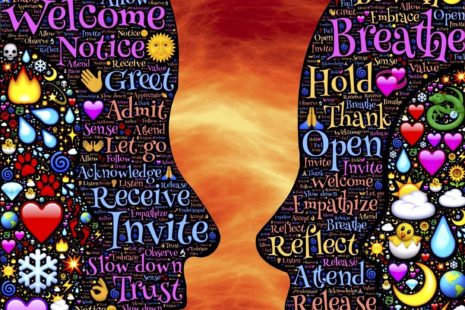 Who Am I?
Who Am I?
Man has been asking the personal identity question since the dawn of time. And the older one gets the more the question gets asked. My definition is the sum total of my thoughts, emotions and actions. These make up my soul or my being. So our journey to answering the “Who am I” question begins with the practical: self awareness.
Your personal identity includes your worldview, strengths, weaknesses, preferences and a variety of other attributes. These help us understand reality. Reality Testing is one of 15 elements of Emotional Intelligence. Those high in understanding reality are objective. They are principle centered, know the facts and accept them. Consequently, those in touch with reality also know intuition is important and use it if they have good instincts. These people usually have a high level of self awareness.
There is one thing I think it important to point out. You are not your job! However, in the absence of being able the personal identity question your job will become your identity. It’s the American way! Hence, I love what Dave Rhodes says, “If you don’t know who you are created to be you will become what you are paid to be.”
How Do You Develop Self Awareness?
Short answer: begin with assessments.
- Myers/Briggs Temperament Indicator (MBTI) is a great first start. In fact you can get a free MBTI HERE. There are a variety of other assessments that identify preferences such as DISC, Insights and others.
- Another good assessment is StrengthsFinder.
- Probably the best way to truly understand how others see you is 360 Feedback. In my coaching practice I use Emotional Intelligence testing for both individual insight and 360 feedback. Improving self awareness is a journey.
- Next, discover what you value
What Are Your Values
One reason our resolutions fail is we continue to live inconsistently with our core values. Are you living consistently with your core values? Do you believe your usefulness determines your success? How are the answers to these two questions in harmony with one another?
What Are Core Values
Core values are the qualities that you most admire and determine your actions. Inc published this and is a good beginning point in developing your list of values. Additionally, you can simply start a series of top 10 lists.
Try these:
- What 5-10 things from my family do I most admire? Make me angry?
- What 5-10 things do I most admire from the people I love the most?
- What are the top 5-10 good things occurred in my past? Bad things?
- What 5-10 things do you learn from your free personality assessment?
- What 5-10 things make you angry? Frustrate you? Offend You?
On the angry list identify the opposite of the meaning. This would be something you value. For example, it offends me when people believe the worst in others. Consequently, one of my core values is compassion. This is also somewhat aspirational. My other core values are adventure, restoration and curiosity. As Mahatma Ghandi said,
Your beliefs become your thoughts. Your thoughts become your words. Your words become your actions. Your actions become your habits. Your habits become your values. Your values become your destiny.
Therefore, core values describe the why of our actions in life. You are most alive when you are living out your core. But honestly, I can’t answer the personal identity question fully. I can only scratch the surface. This is a question we must all answer for ourselves. For more on the big questions of life







